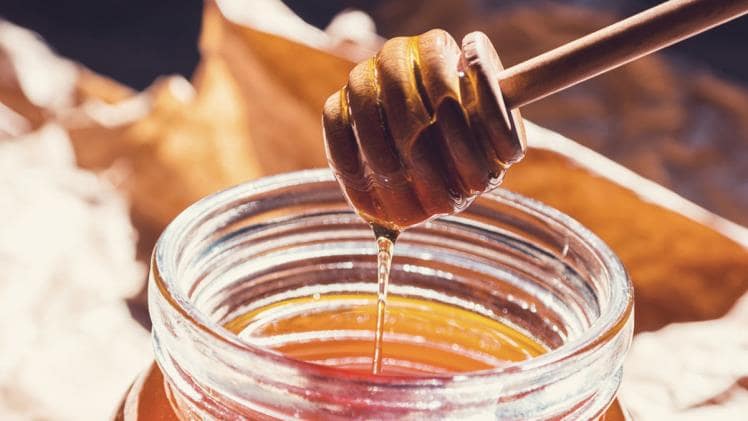The nutritional value of buckwheat honey is great. It saturates the body with fructose and glucose, helping to speed wound healing and restore the retina. Other benefits of buckwheat honey include strengthening the immune system and treating respiratory infections and colds. As a cough remedy, it can be used as a substitute for cough syrup. It can also be used to cure various stomach and intestinal ailments.
Antioxidants protect cells from damage
The antioxidants found in foods slow the process of cell damage. Some act as preventatives and inhibit free radical formation while others reverse cell damage by transforming these molecules into less damaging compounds or waste products. Still others help repair damaged cells. All play a crucial role in preventing the onset of disease, premature aging and many other aging-related problems. In addition to protecting cells, antioxidants can also increase the body’s immunity.
Various plant foods contain antioxidants. Plants produce antioxidants naturally. Antioxidants are metabolized in aerobic activities. Free radicals are created when substances react with oxygen and take an electron from their host. Antioxidants in plants prevent free radicals from damaging the host organism by preventing electron transfer. In humans, oxidative free radicals damage cells, resulting in global aging and local apoptosis. A good tip for buckwheat honey benefits is that it is not as sweet as other types of honey. It is also a great alternative to more expensive, sweeter varieties.
Buckwheat honey contains more antioxidants than lighter honeys
If you enjoy the taste of dark honey, you may want to try buckwheat. Its rich, copper color is the result of a substance called polyphenol, which is a potent antioxidant. These compounds also give honey its distinctive aroma and flavor. These compounds also help to improve immune function. Some health benefits of raw buckwheat honey are similar to those of Manuka honey. Among these, the latter has antibacterial and anti-inflammatory properties that may help to heal wounds and reduce scarring.
Researchers at the University of Illinois analyzed the antioxidant content of four types of honey and found that darker ones contain more antioxidants than lighter varieties. This is not surprising, considering buckwheat honey is made from darker varieties of buckwheat grains and contains a higher percentage of these seeds. Moreover, honey has been known to be a good source of antioxidants for centuries, so you should consider consuming more of it.
It is more affordable than Manuka honey
The most common question asked by consumers is whether Buckwheat honey is better for your teeth than Manuka honey. Buckwheat honey contains the same antibacterial properties as Manuka honey. It is, however, cheaper. Despite its pricey reputation, it is a good option for those who are on a budget. Both honeys are healthy for your teeth and skin, and both can be beneficial for your overall health.
However, both of these honeys have been extensively studied and are believed to have similar health benefits. Manuka honey has been studied for its antimicrobial and antioxidant properties for a long time, but research on Buckwheat honey has only just begun. Among the health benefits of both honeys, the latter is more expensive. Its antimicrobial properties are attributed to the presence of methylglyoxal, a compound unique to Manuka honey. Buckwheat honey is the North American equivalent of Manuka honey. It can be purchased in grocery stores, health food stores, and online. It is important to know that both honeys have different taste and are not necessarily equal.
It is a good alternative to cough syrup
Many of us have used cough syrup, but have you considered buckwheat honey instead? Not only is it delicious, but it also has many health benefits, including increased immunity and antimicrobial effects. In fact, a 2007 Penn State study found that buckwheat honey is just as effective as the main cough suppressant drug, dextromethorphan. It also helps with sleep problems, as it inhibits bacteria and has antimicrobial properties.
Buckwheat honey has long been used as a cough suppressant. Researchers at Penn State College of Medicine found that it was more effective in suppressing coughs than the most common cough suppressant, dextromethorphan, in over-the-counter cough syrup. In a recent study, 105 children were given buckwheat honey before bedtime and reported fewer coughs than those given dextromethorphan.
It can be harmful to health
There are two major myths about buckwheat honey – that it can be harmful for your health and that it’s not beneficial for your body. In fact, both are false. The benefits of buckwheat honey outweigh its drawbacks. The former focuses on its antibacterial properties, while the latter concentrates on its benefits for your skin. If you’re worried about either one, you should know the facts and choose the healthiest option for you.
Although buckwheat honey is a popular medicinal product, it can be detrimental to your health when used in excess. If you’re a diabetic, you shouldn’t use buckwheat honey to help your body burn fat. If you’re pregnant, don’t use buckwheat honey if you have diabetes. If you have a child under two, buckwheat honey can cause diarrhea and indigestion. This substance can also irritate mucous membranes in your throat, nose, and lungs.

